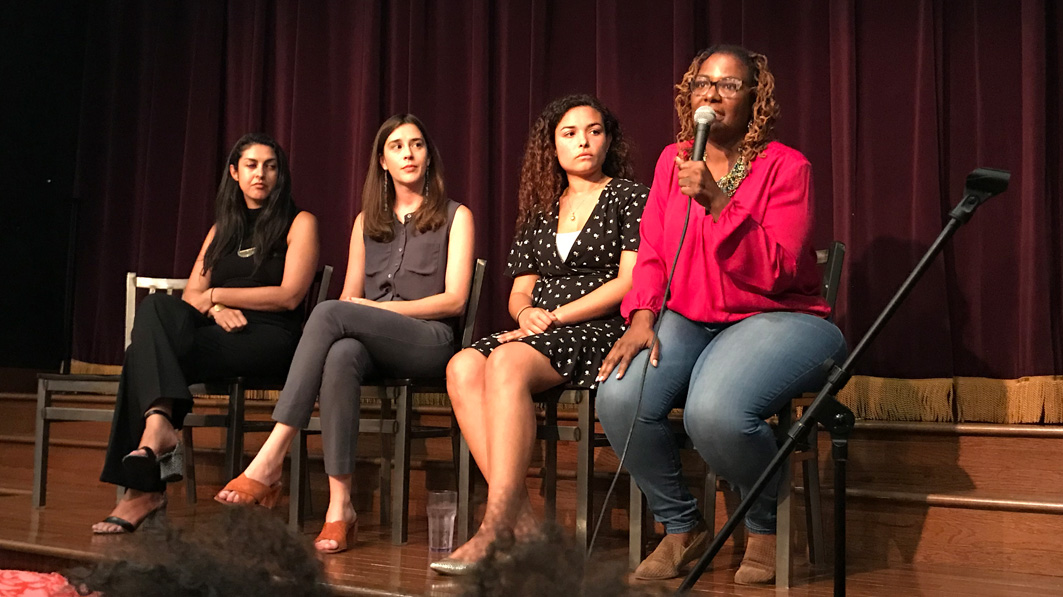Sex trafficking is a crisis in Washington, D.C. David Grosso’s misguided bill, recently proposed in the city council, would normalize pimping, brothel keeping and sex buying in the nation’s capital, with devastating effect.
Tina Frundt, founder and executive director of the city’s only African American-run program for victims of human trafficking, Courtney’s House, receives between five and eight new referrals each week.
“Five years ago, our youngest kids were 13 years old. Today, I have three 9-year-olds who were sold for sex, not to mention a long waiting list of youth desperate for help,” Frundt reported. She anticipates a dramatic increase in sex trafficking if the D.C. Council approves a bill now under consideration.
Misguided Approach
The Community Safety and Health Amendment Act of 2019 (23-0318), introduced by Council Member David Grosso and co-introduced by four others (including Judiciary Committee chair, Charles Allen, Jr.), would normalize the commercial sex industry by decriminalizing pimping, brothel keeping and sex buying—effectively legalizing it.
Worldwide, where the sex trade is legitimized, sex trafficking increases according to a study by the London School of Economics and University of Heidelberg.
Rhode Island decriminalized the sex trade between 1980-2009. As a result, the state became a regional sex tourism hub with high rates of sex trafficking and extensive criminal involvement.
“By decriminalizing the purchase of sex, the District would be inviting even more men into the market…and because the sex industry will never have as many willing participants as an
unchecked demand requires, traffickers will target the most vulnerable women and youths in our communities to meet that demand,” wrote Frundt in a Washington Post Op Ed co-authored with Yasmin Vafa, executive director of Rights4Girls.
Empirical evidence supports their prediction.
Demand Explodes
Once you normalize the sex trade, it explodes, because men who don’t buy sex when it is illegal become new clients. As a 2018 study of 8,000 U.S. men demonstrates, over 20% of respondents who never bought sex, would go ahead if it was decriminalized or legalized.
In Germany, where prostitution and brothels have been legal since 2002, an estimated one
million men buy sex each day. Berlin alone has over 500 brothels.
To satisfy demand, the sex trade has to lure in vulnerable people, because there are never enough people, mainly women, willing to be exploited and degraded in prostitution. Sex trafficking cases increased 70% in Germany as a result of legalization.
Inherently Dangerous
Proponents of the bill, led by the trans community, say it will make the sex trade safer, because people selling themselves will not fear the police, so they can report violence.
But no independent studies show normalizing the sex trade makes it safer.
Prostitution is inherently dangerous and harmful. The only way to protect people is to shrink the market. In a nine-country study of 785 prostituted women, 68% suffered PTSD at same severity as combat veterans and victims of state torture.
Upcoming Hearing
A public hearing will be held on the bill at 10:00 AM on October 17, 2019. Washington D.C. residents are welcome to present three-minute statements regarding the proposal—organizations based in D.C. can testify for up to five minutes and their spokesperson can be a resident of any place.
Sign up to testify by emailing the Judiciary Committee at [email protected]. In your email, please provide your name, telephone number, organizational affiliation, and title (if any) by the close of business on Monday, October 14.
Please alert Eleanor Gaetan ([email protected]) at the National Center on Sexual Exploitation if you need advice on testifying against this miserable proposal.
Photo: Few organizations are working to fight the full decriminalization of commercial sex in DC (including pimping, sex buying, and brothel keeping.) Four groups that are leading the campaign against David Grosso’s bill before the DC Council are: Yasmin Vafa, Rights4Girls; Ashley Harrell, Safe Shores; Naïké Savain, Children’s Law Center; and Tina Frundt, Courtney’s House.






